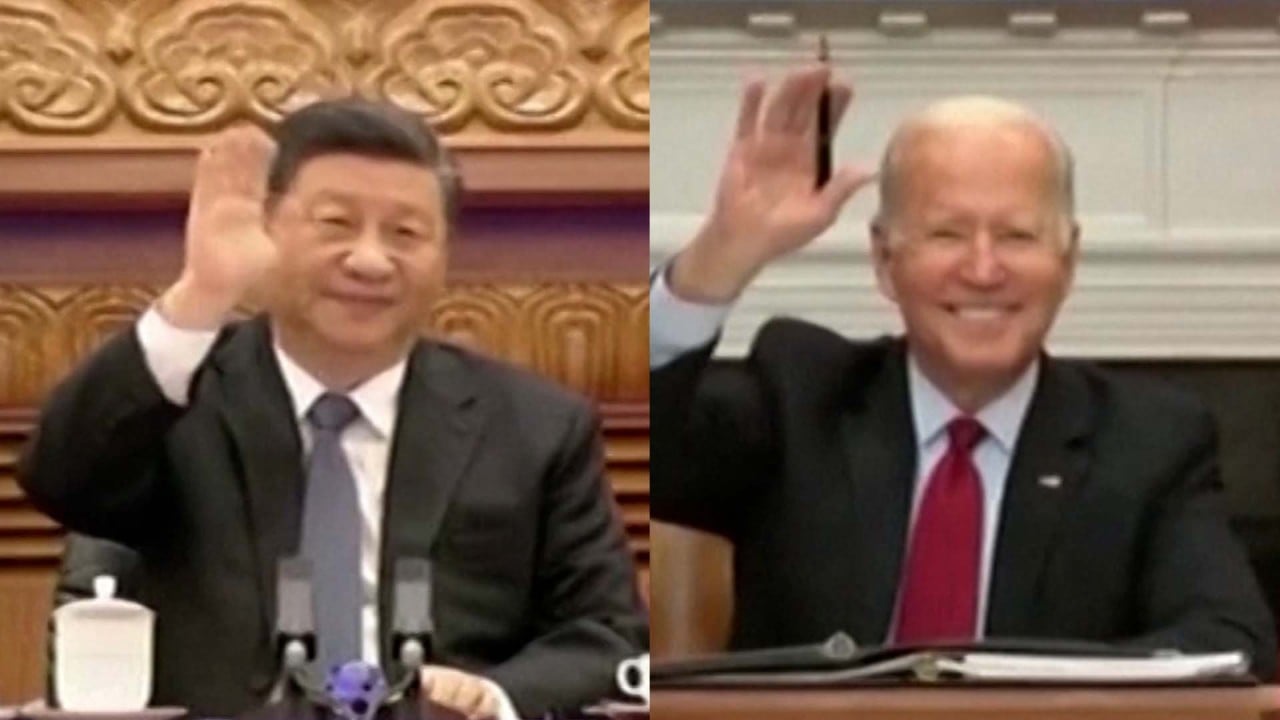
China strengthens its US embassy team with ‘soft-spoken’ pragmatist Jing Quan
- The 46-year-old former aide to Beijing’s most senior diplomat will be key aide to Washington envoy Qin Gang
- His experience in US affairs and down-to-earth approach mean Jing’s appointment is seen as a hopeful sign for China-US relations
Jing Quan, a former fellow at the Brookings Institution, an American think tank, assumed the third-ranking diplomatic role of minister at the Chinese embassy in the US capital this week.
Observers said Jing’s appointment was a sign that Beijing remained hopeful of returning its rapidly worsening ties with the US to the right track, despite their deepening feud.
Jing, who stepped down as deputy head of the foreign ministry’s Department of North American and Oceanian Affairs before heading to Washington, is likely to step into the embassy’s second-ranking role soon, according to sources.
He is expected to take over from deputy chief of mission Xu Xueyuan – a former departmental colleague of Jing’s – who is wrapping up her stint of nearly three years.
Jing made his Washington debut at a trade event on Wednesday to mark the first batch of 500 tonnes of soybeans from Kansas exported to China’s Henan province.
China makes another change to its diplomatic line-up on US relations
He hailed the deal as an example of US-China cooperation and called for joint efforts on both sides, especially at the local and business levels, to overcome differences and avoid conflict or a new cold war.
Huang Jing, dean of the Institute of International and Regional Studies at Beijing Language and Culture University, said Jing was a good choice to assist Qin, 55, who is on his first ambassadorship and lacks exposure in managing US affairs.
“With the deterioration of bilateral ties, handling US affairs has become increasingly challenging. And Qin obviously needs time and help to learn how to do his job properly and set up his own team,” he said.
Huang, who described Jing as “an experienced American hand”, said he had dedicated most of his career to US affairs with a reputation as a soft-spoken pragmatist – in contrast to his Wolf Warrior-style colleagues, best known for their aggressive posturing.
“His appointment will send a positive signal to Washington,” he said.
Several Chinese diplomats also described Jing as “capable, hardworking and down-to-earth” and pointed to his years as Yang’s secretary as the highlight of his career.
Yang, a former foreign minister, picked Jing as his close aide on his elevation to state councillor in 2013. It is believed that Jing accompanied Yang on many of his overseas trips, including to the US, and in meetings with foreign dignitaries.
Yang also served as minister at the Washington embassy in the 1990s, before becoming ambassador in 2000. He was elevated to the Communist Party’s decision-making Politburo in 2017, making him China’s most powerful foreign policy official since 2003.
Following his promotion to deputy head of the department in day-to-day charge of US affairs, Jing attended the bilateral diplomatic and security dialogue in Washington in November 2018 chaired by Yang, Chinese Defence Minister Wei Fenghe and their then American counterparts Mike Pompeo and James Mattis.
Amid calls for ‘iron army’ of diplomats, China cuts spending on foreign affairs
He was also present when Xie Feng, foreign vice-minister responsible for American affairs since February, had a fiery exchange in July with US deputy secretary of state Wendy Sherman in Tianjin.
Jing joined the foreign service in 1997 after graduating from Xian Foreign Studies University with a bachelor’s degree in English language.
After serving a four-year stint at the Chinese embassy in Thailand, he became one of China’s first officials to enrol as a visiting fellow at the Brookings Centre for Northeast Asia Policy Studies in Washington in 2004.
His fellow alumni of the 10-month programme, which started in 1998, include many renowned Chinese experts on US and international affairs, including Jia Qingguo, Chu Shulong and Zhu Feng.
Sweet words from China to US business fail to soothe Washington ire
Both Huang and Pang Zhongying, another Brookings fellow of 2007, said the rise of younger diplomats like Qin and Jing marked the acceleration of a generational transition that may alter the landscape of China’s foreign policymaking in the years to come.
In recent years, Beijing has also promoted a number of diplomats in their 50s, including Xie, 57, deputy foreign minister Le Yucheng, 58, and foreign ministry spokeswoman Hua Chunying, 51, who was elevated to assistant minister in October.
“Those born in the 1960s and 1970s have emerged as the backbone of China’s diplomatic corps,” said Pang, an international affairs expert at Ocean University of China in Qingdao.
But he said it remained to be seen if the change in diplomatic line-up could make much difference to the nadir in US-China ties.
“Given the extent of the decline in bilateral ties and domestic situations in both countries, it is almost inconceivable that there can be any meaningful improvement in the foreseeable future,” Pang said.
“While it is good to see the rise of the post-Cultural Revolution cohort, I’m afraid there may not be much room for them to make real changes to existing policies that set the countries on a path to confrontation.”


